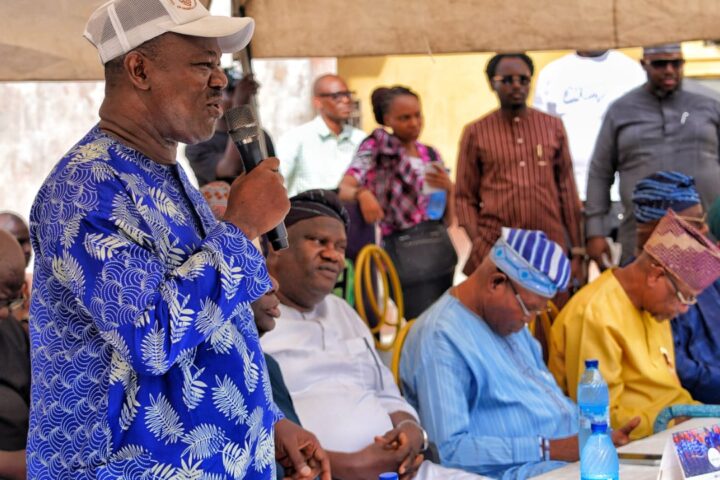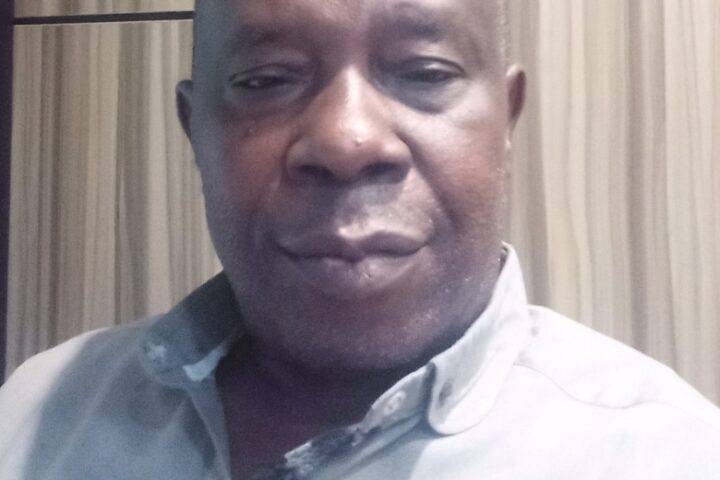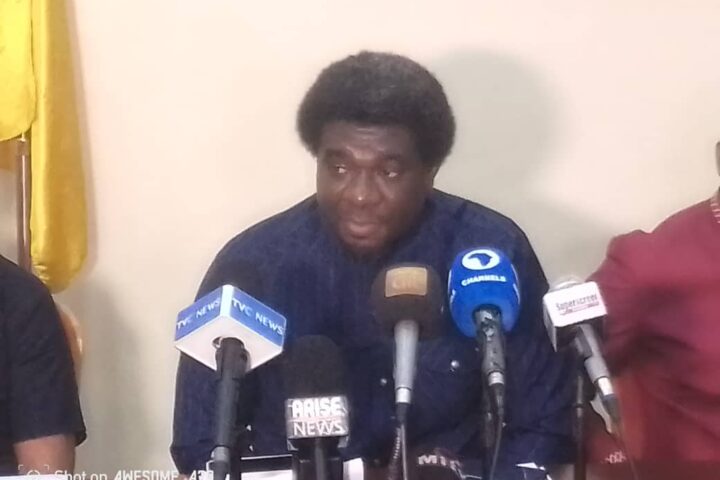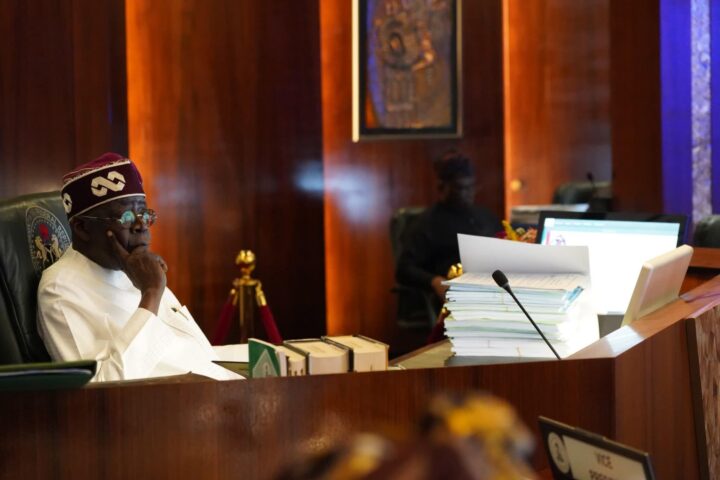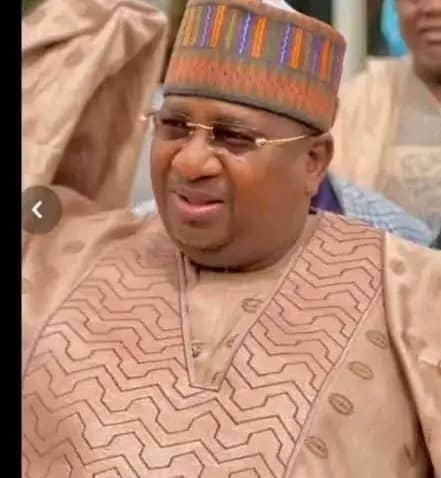Mohammed Shosanya
Oyo State Governor, Engr Seyi Makinde,on Monday constituted a special technical and legal committee to review the recent supreme court judgement on local government financial autonomy.
The State’s Attorney General and Commissioner for Justice, Barrister Abiodun Aikomo, Commissioner for Local Government and Chieftaincy Matters, Hon Ademola Ojo disclosed this at a press briefing after a consultative/advisory meeting.
Governor Seyi Makinde had earlier before the close door meeting berated the supreme court judgement and strategies by the federal government to usurp undue authority over the state and local government administration thereby causing tension within that nation’s polity rather than focus on other germane issues affecting the nation’s economy.
Makinde said,he had seen a lot of sensational headlines in the newspapers where people gave different interpretations to the issue.
He added:“Let me thank you all for joining this important consultative meeting. I want us to discuss the decision of the Supreme Court as it concerns financial autonomy of the local government councils.
“I believe a lacuna has been created between the decision and the constitution of the Federal Republic of Nigeria. We all swore to uphold the constitution but the law is the law. If the law is in conflict, it behoves on us to look for our own home-grown solution that can ensure that we have transparency and operate with our people. This is because when two elephants are fighting, the grass will suffer.
“Let me also recall that since the beginning of this administration, we have conducted two local government elections and When I was sworn in, I dissolved the local government. The Supreme Court just basically said to us that governors don’t have the right to dissolve the councils but why did I dissolve them then? It was because elections were held into the LCDAs and the same Supreme Court has basically now said that only 774 LGAs in Nigeria.
“So, there is confusion in the land, but when you have confusion, what it means is that the structure is shaking and we have to remove much of those confusions as much as possible.
“So, we will be outlining the major challenges we have at the local government areas so that we can develop our own solution. And the challenges of addressed, will ensure that we have seamless implementation of the process that can allow Oyo State to continue.
“So, on the issue of LG elections in Oyo State, we don’t have caretaker committees at the local level. We planned the elections in a way that not a single day was given out. We have a responsible government in Oyo State, we don’t need the federal government to tell us what to do. We know what is good and we know what is good for our people.
“Go back a little bit, what we inherited as an administration in 2019 was a local government system that was owing backlog of salaries, gratuities, pensions. I am saying this because Oyo State will get out of this even stronger. We are people that know what is good for our people.
“We can run our affairs by ourselves. The FG is not superior constitutionally to the state government though they have more resources than the states. So, we can do what is right in Oyo State and we have been doing what is right.
“For the primary school teachers, the Chairman of NUT is here. Before we came in, leave bonuses were last paid in 2017 and we paid that of 2018, 2019, 2020, 2021, 2022 and 2023. The Primary health care facilities, inner roads were all in bad shape. We have been working collaboratively with the LGs to deliver dividends of democracy to our people.
“We were able to clear those salary arrears. We paid N18bn in pension and gratuities over these period. We upgraded about 209 PHCs, equipped about 264, completed 60 model schools. We constructed and renovated hundreds of primary school classrooms and fixed some inner roads but there are still challenges that we have to address. We still have backlog of gratuities and pension.
“The local government is owing about N55bn in pension and gratuities. We are developing infrastructure that would push the economy and raise the living standard of their people and push their economy towards sustainable goals. But for us, at that time, our priority was not to deploy resources.
“What I am hearing right now is that our problem is not also money but how to share it. But I insist that our problem is not how to share money but how how to bake a bigger cake and bring our people out of hunger and poverty and stop the anger in the land.
“Our people do not care of the road is fixed by the FG or the state government or the LG. They just want to see good roads. An example is the Oyo-Iseyin road through Fasola, which is a Federal government road but the state government fixed it and I have the letter for the FG when I wrote it for approval. It is a critical road to Oyo State economy.
“I believe it is our problem irrespective of what they are doing at the federal level. We know what is important to the lives of our own people here in Oyo State. I learnt FAAC is tomorrow (Tuesday) and all of you can come. We will delay the implementation for the next ninety days, which is three FAACs from now. They will still pay the money into JAC account.
“You make the laws, you break it. So, the law is at your own. That is not how to run a country. If you make the law, let us all obey the law. For us in Oyo State, we can solve our own problem, deal with our situation and prioritize our people. Our pass mark is to discuss among ourselves and whatever we agree upon.
“I am not saying things should not be transparent at the local government level but it is a distraction to say this is the magic bullet that will wash away our problems. NULGE is here, NUP, NUT and others are here. So, let us sit down and discuss and fashion out our own way out of this issue.” Makinde said.
At the press briefing, Hon Ademola Ojo assured that Governor Seyi Makinde remained committed to the people’s well being and would protect and safeguard the interest of all stakeholders
Barrister Aikomo,whho explained that the terms of references which specifically hinged on review of the supreme court judgement, identifying challenges and proffering recommendations that would result in implementation plan for the benefit of all stakeholders, noted that the committee had been given a duration of 4 – 6 weeks




